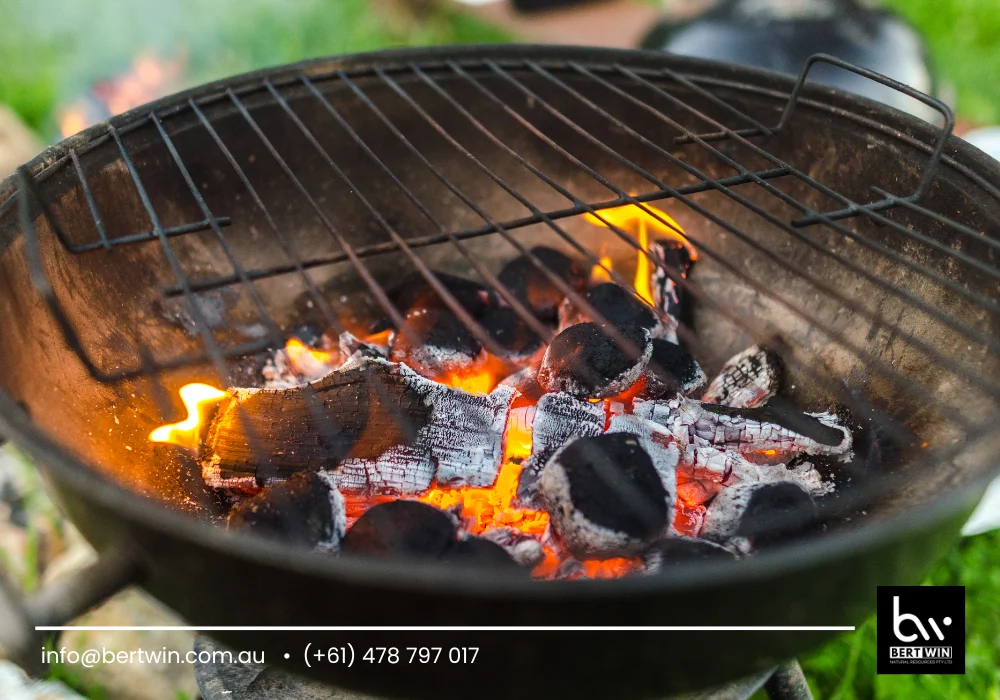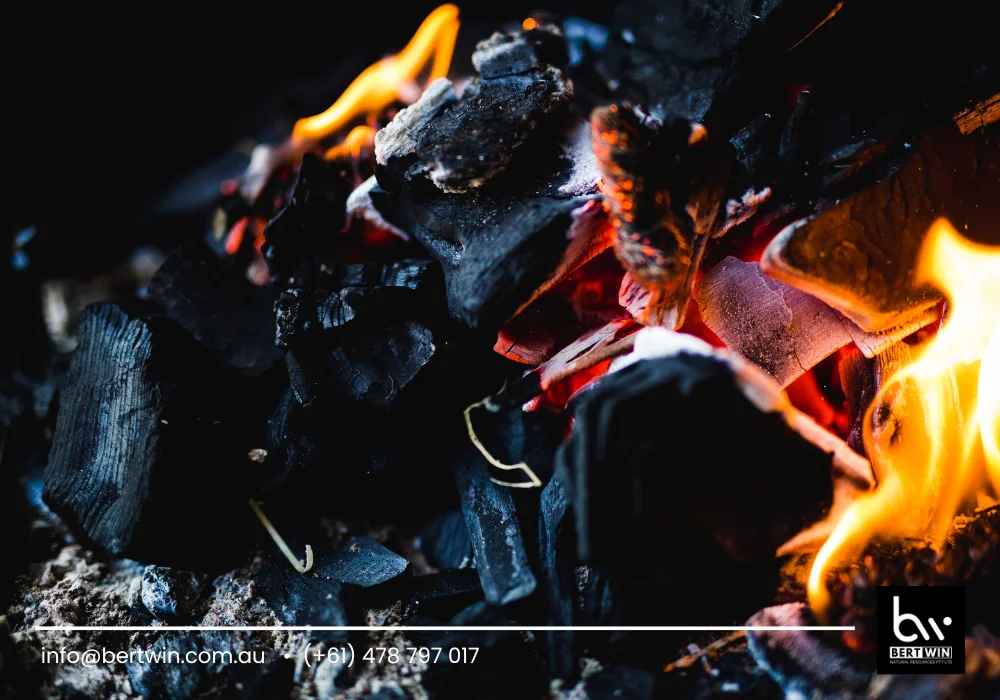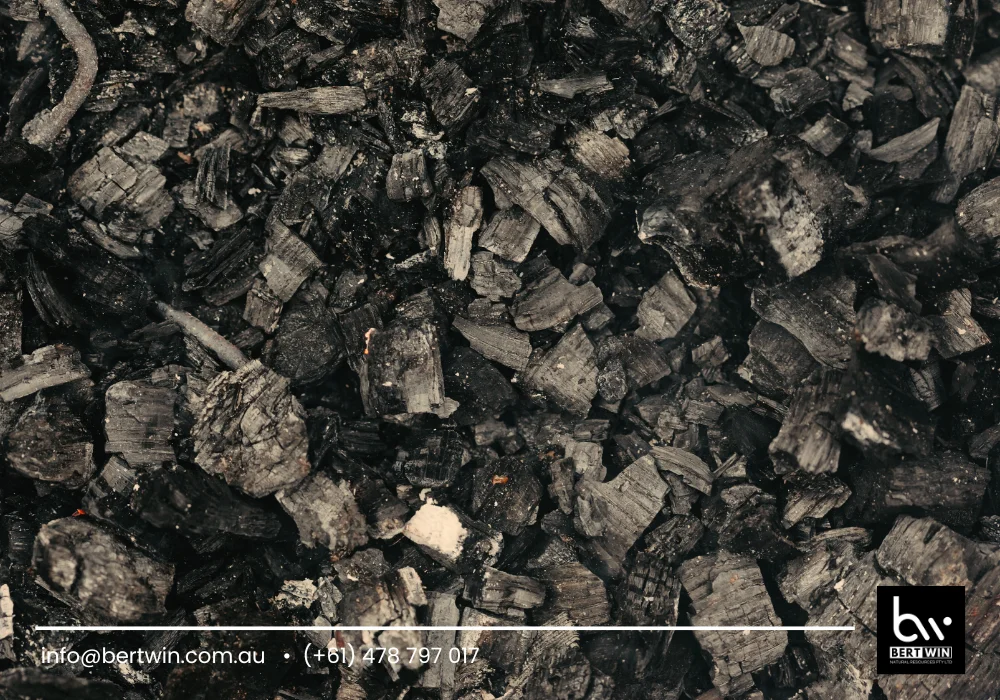Coconut charcoal for cooking is becoming increasingly popular due to its sustainability, efficiency, and clean-burning properties. Made from the shells of coconuts, this type of charcoal is not only an excellent fuel source but also an environmentally friendly alternative to traditional charcoal. In this article, we will explore the benefits of coconut charcoal for cooking, how it compares to other types of fuel, and why it’s becoming a preferred choice for chefs and home cooks alike.

What is Coconut Charcoal for Cooking?
Coconut charcoal for cooking is produced by burning coconut shells at high temperatures in a controlled environment, a process known as pyrolysis. This method turns the coconut shells into a dense, blackened material that burns hotter and cleaner than traditional wood charcoal. The result is a fuel that is not only efficient but also eco-friendly, as it comes from a renewable source—the coconut shell, a byproduct of the coconut industry.
Coconut charcoal is typically sold in the form of lumps or briquettes and is commonly used for grilling, barbecuing, and even in indoor cooking appliances like stoves and ovens. The natural properties of coconut charcoal make it an ideal choice for cooking because it produces little smoke and ash, ensuring a cleaner cooking environment.
Benefits of Using Coconut Charcoal for Cooking
- Cleaner Burn with Less Smoke and Ash
One of the key advantages of coconut charcoal for cooking is its ability to burn cleaner than traditional charcoal. Coconut charcoal produces less smoke and very little ash compared to wood-based charcoal. This results in a cleaner cooking experience, with fewer residues to clean up afterward. The reduced smoke also makes it a better option for indoor cooking, where ventilation might be limited. This clean-burning property ensures that the food cooked on coconut charcoal retains its natural flavors without being affected by harsh, smoky odors. For grilling and barbecuing, this means more delicious and flavorful food, without the bitter aftertaste often associated with other types of charcoal. - Higher Heat Output and Longer Burn Time
Coconut charcoal for cooking burns at a higher temperature than regular charcoal, making it more efficient for cooking. The high heat output ensures that your food cooks evenly and quickly, especially important when grilling meat, vegetables, or seafood. This is especially beneficial for professionals in the food industry who need reliable and consistent heat for cooking large quantities of food. Additionally, coconut charcoal has a longer burn time compared to traditional charcoal. It burns hotter and for a more extended period, allowing for continuous cooking without the need for frequent refueling. This is particularly helpful for outdoor grilling or barbecuing, where maintaining consistent heat is essential for perfect results.

- Eco-Friendly and Sustainable
Coconut charcoal for cooking is made from coconut shells, which are often discarded as waste. By repurposing coconut shells into charcoal, this process reduces waste and provides an environmentally sustainable alternative to charcoal made from hardwood trees. Unlike traditional charcoal production, which contributes to deforestation, coconut charcoal is a renewable resource that helps preserve forests and ecosystems. Moreover, the production of coconut charcoal generates fewer carbon emissions than that of traditional charcoal. It is also biodegradable and can be composted at the end of its lifecycle, making it an environmentally friendly choice for eco-conscious consumers. - Odorless and Non-Toxic
Another significant benefit of coconut charcoal for cooking is that it is odorless and non-toxic. Unlike some other types of charcoal that can release harmful chemicals during combustion, coconut charcoal burns without emitting harmful toxins or unpleasant smells. This makes it a safer option for cooking, especially in closed environments like kitchens or indoor grilling spaces. Additionally, coconut charcoal does not produce harmful gases such as carbon monoxide, which can pose a risk to health. It ensures that your cooking environment remains safe and free from toxic fumes, providing peace of mind while you prepare your meals.
How to Use Coconut Charcoal for Cooking
- For Grilling and Barbecuing
Coconut charcoal for cooking is ideal for grilling and barbecuing due to its high heat output and long burn time. To use coconut charcoal for grilling, simply light the charcoal using a chimney starter or match. Allow it to burn until it is glowing red, and then spread it evenly across the grill. For direct grilling, arrange the charcoal in a single layer, ensuring that the heat is concentrated beneath the food. For indirect grilling, create two heat zones by placing more charcoal on one side of the grill. This allows you to cook food at different temperatures and achieve the desired level of doneness. - In Indoor Cooking Appliances
Coconut charcoal for cooking can also be used in indoor cooking appliances such as charcoal stoves or ovens. To use coconut charcoal indoors, ensure that the appliance is designed for charcoal use and that the area is well-ventilated. Coconut charcoal burns hotter and cleaner, making it an excellent choice for indoor cooking, especially in small kitchens or for those who want to avoid using electric or gas-powered appliances. Always follow the manufacturer’s instructions and safety guidelines when using coconut charcoal indoors to ensure a safe cooking experience. - For Outdoor Use
Coconut charcoal is perfect for outdoor cooking, whether you’re hosting a barbecue or cooking over a campfire. Due to its clean burn, it’s especially useful for outdoor gatherings where you want to minimize smoke and ash, creating a more enjoyable environment for guests. Its longer burn time means less frequent attention is needed, so you can focus more on preparing your meals and enjoying the company of friends and family.

Conclusion
Coconut charcoal for cooking offers numerous benefits, from its clean burn and longer burn time to its eco-friendly and sustainable nature. It provides an efficient, high-heat fuel source that improves cooking results, whether you’re grilling outdoors, barbecuing, or using an indoor stove. By choosing coconut charcoal, you not only enhance your cooking experience but also contribute to a more sustainable and environmentally friendly way of cooking.
For further information, you may contact WhatsApp at (+61) 478797017 or via email at info@bertwin.com.au.
